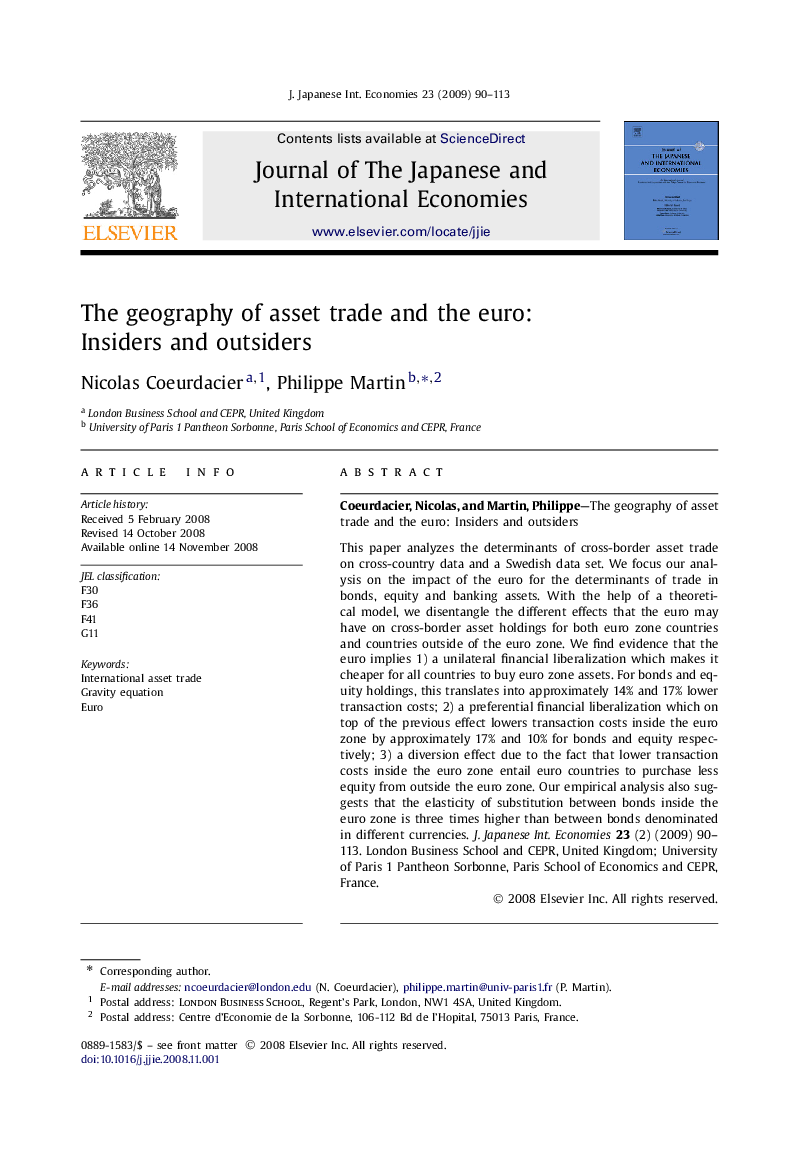| Article ID | Journal | Published Year | Pages | File Type |
|---|---|---|---|---|
| 965051 | Journal of the Japanese and International Economies | 2009 | 24 Pages |
Abstract
This paper analyzes the determinants of cross-border asset trade on cross-country data and a Swedish data set. We focus our analysis on the impact of the euro for the determinants of trade in bonds, equity and banking assets. With the help of a theoretical model, we disentangle the different effects that the euro may have on cross-border asset holdings for both euro zone countries and countries outside of the euro zone. We find evidence that the euro implies 1) a unilateral financial liberalization which makes it cheaper for all countries to buy euro zone assets. For bonds and equity holdings, this translates into approximately 14% and 17% lower transaction costs; 2) a preferential financial liberalization which on top of the previous effect lowers transaction costs inside the euro zone by approximately 17% and 10% for bonds and equity respectively; 3) a diversion effect due to the fact that lower transaction costs inside the euro zone entail euro countries to purchase less equity from outside the euro zone. Our empirical analysis also suggests that the elasticity of substitution between bonds inside the euro zone is three times higher than between bonds denominated in different currencies. J. Japanese Int. Economies 23 (2) (2009) 90-113.
Related Topics
Social Sciences and Humanities
Economics, Econometrics and Finance
Economics and Econometrics
Authors
Nicolas Coeurdacier, Philippe Martin,
